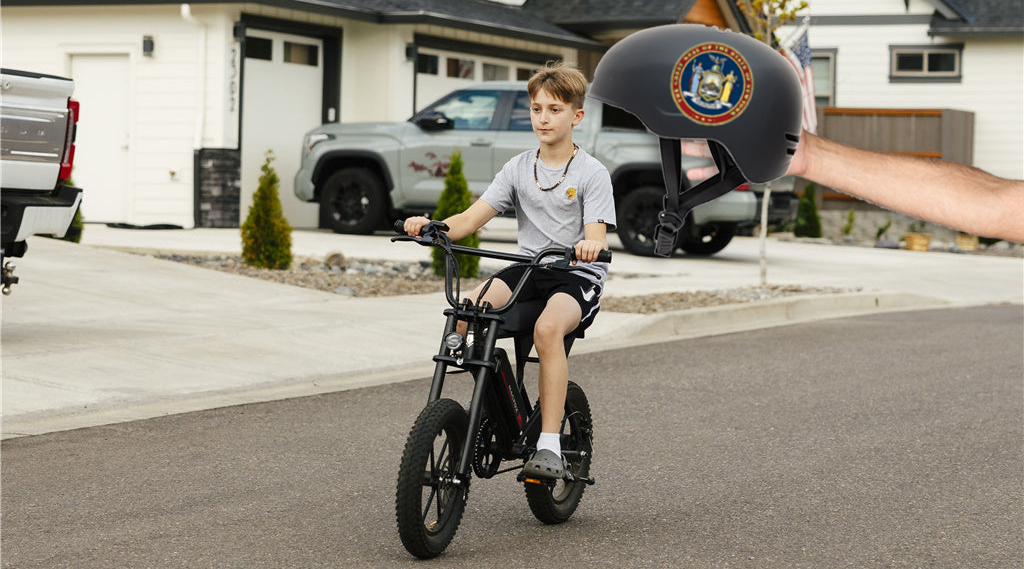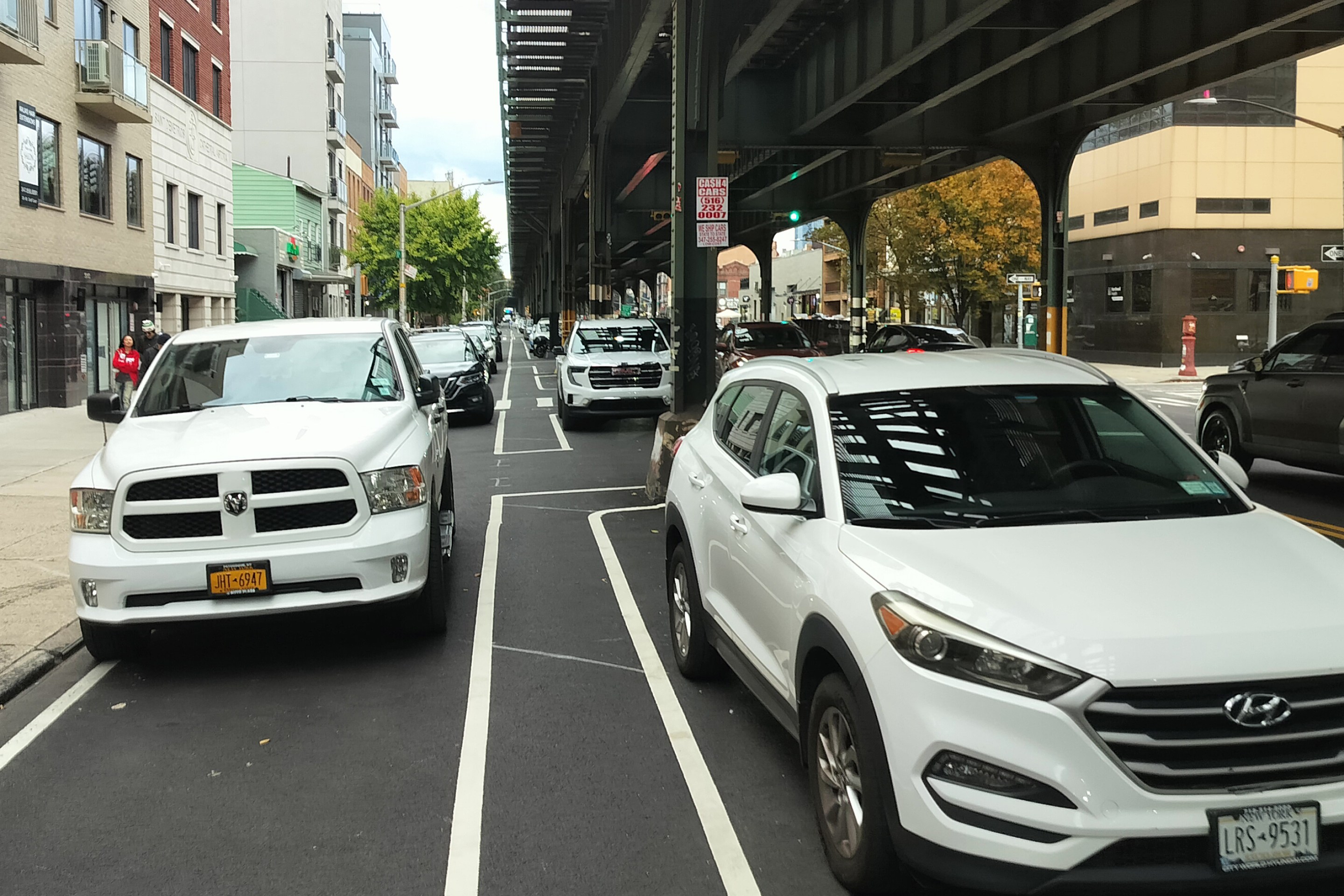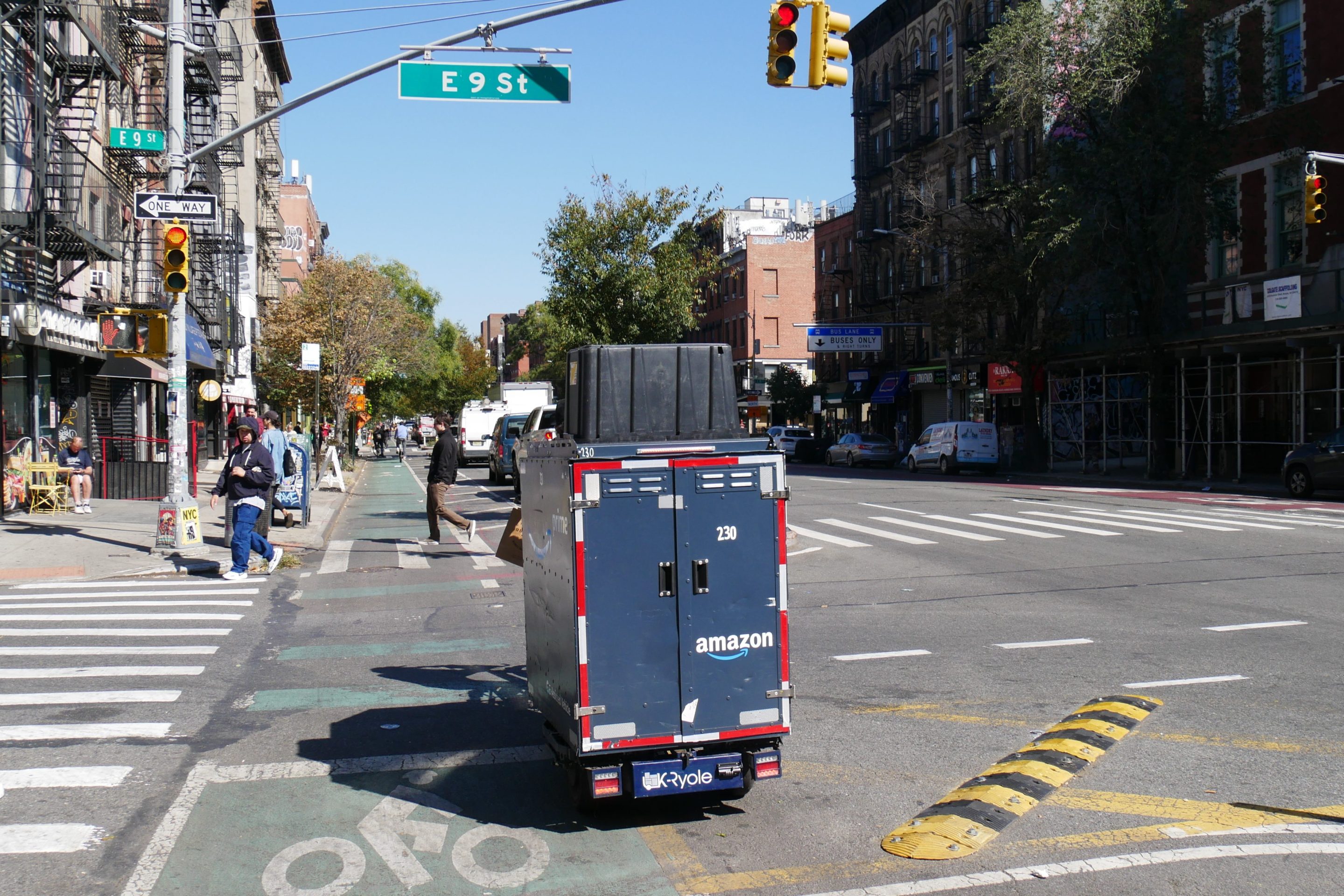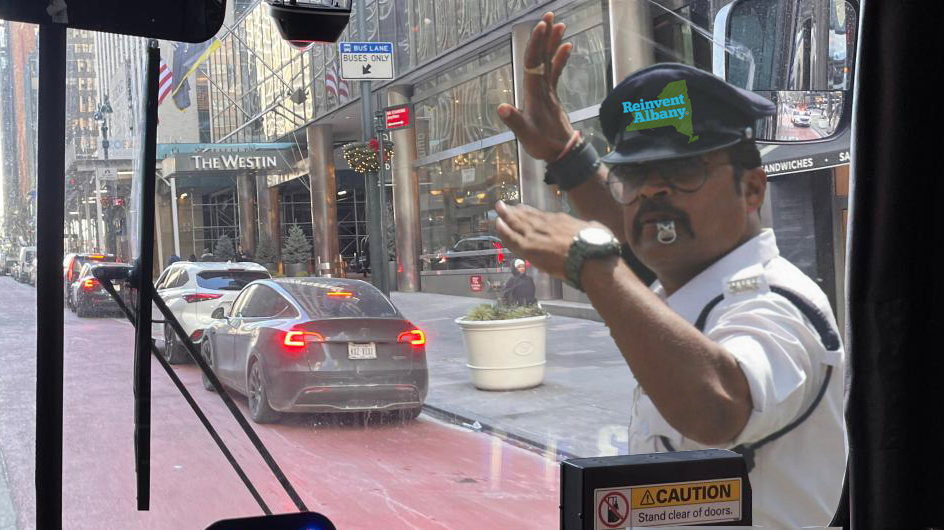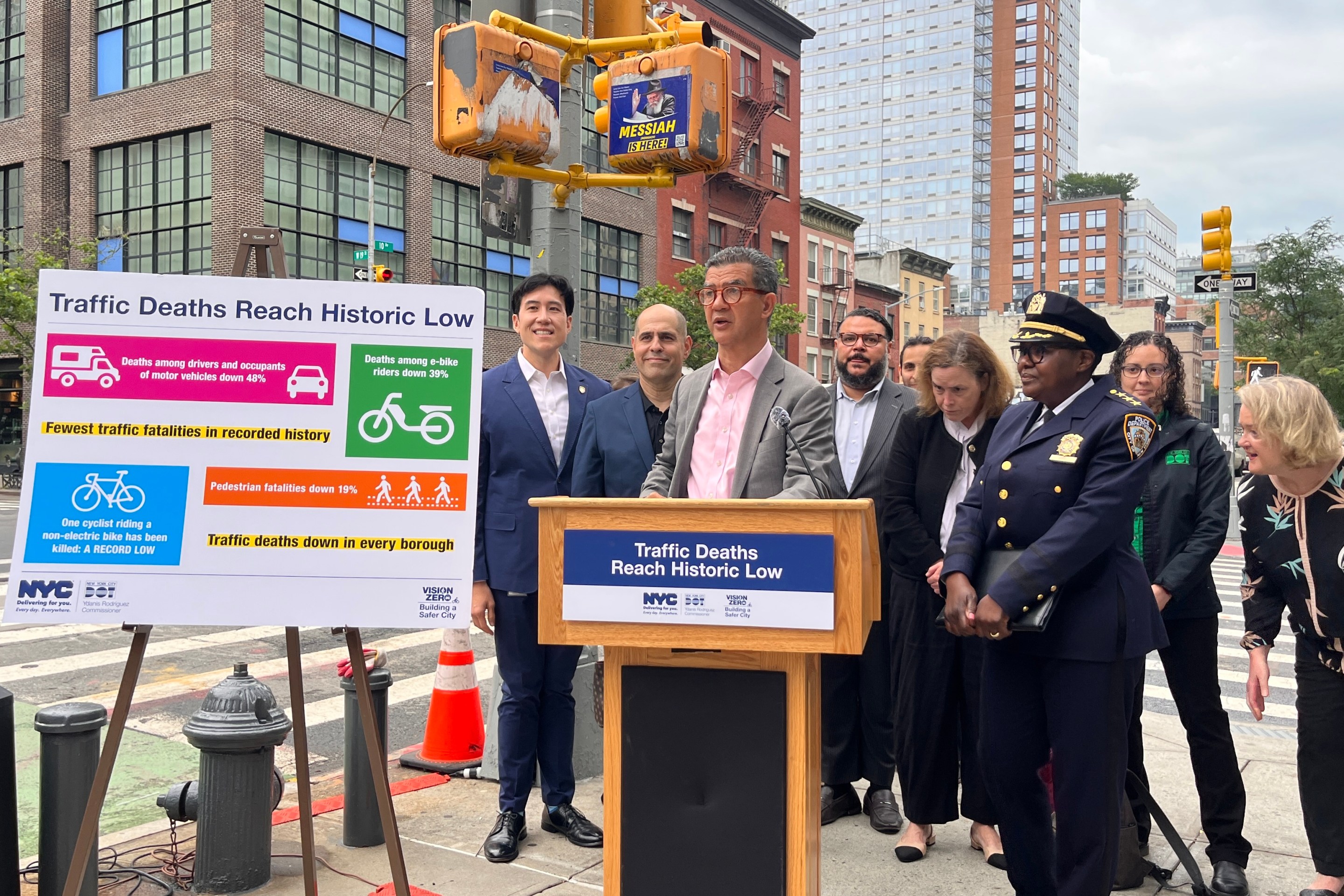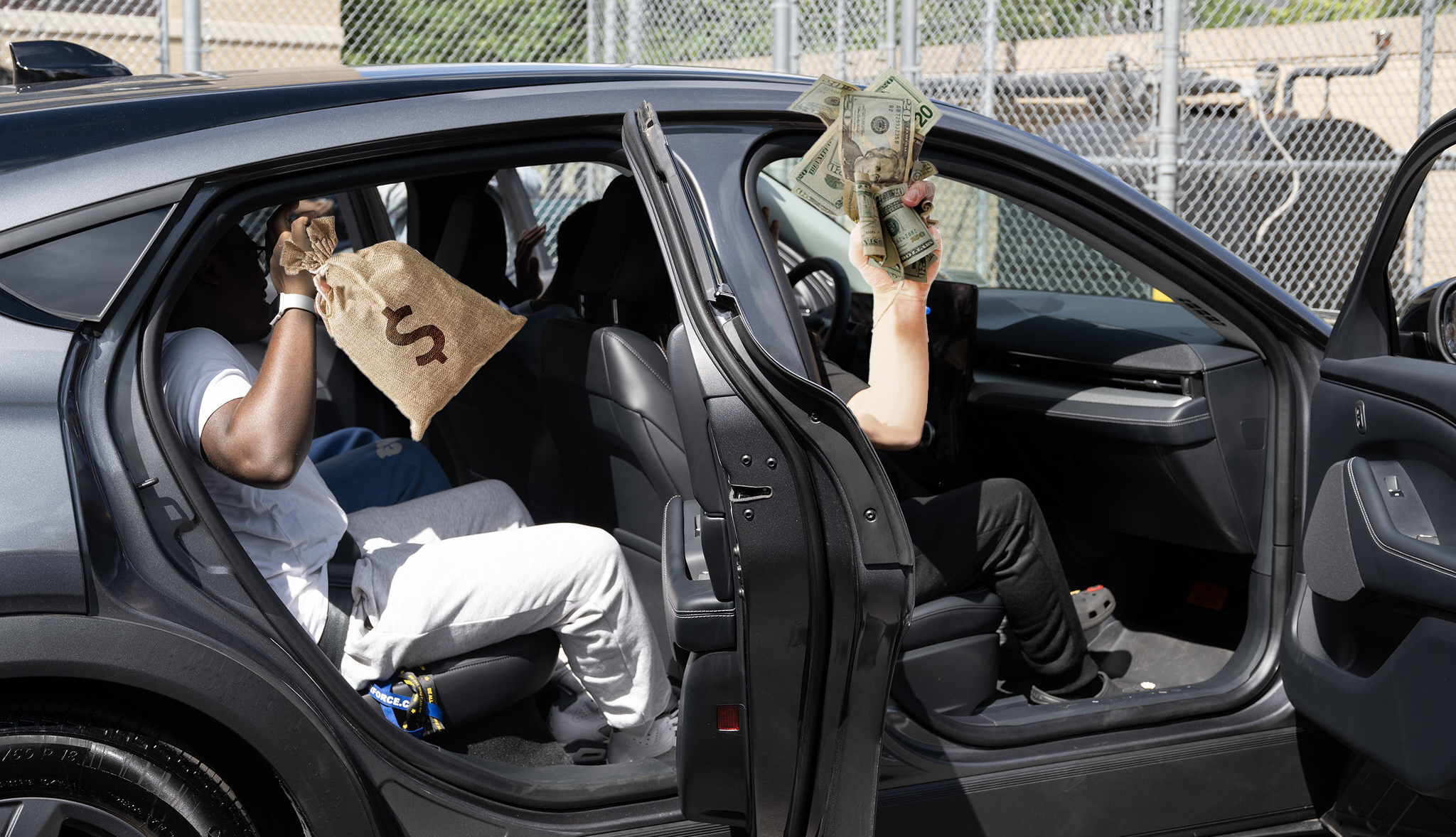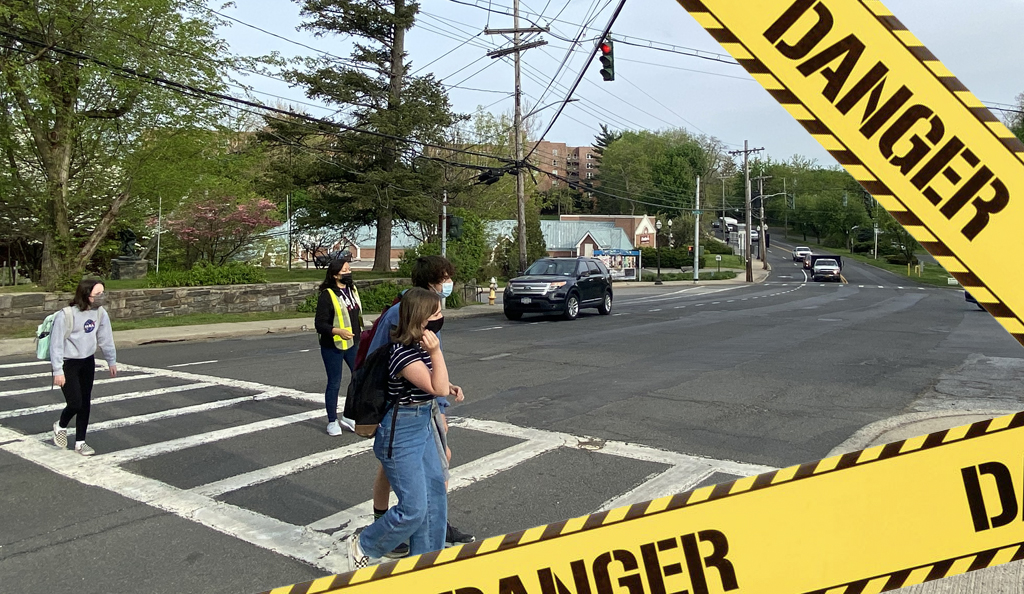
ALBANY — The state Assembly on Thursday took aim at young Citi Bike users, subjecting them to onerous fines by passing a bill to mandate helmet for 16- and 17-year-old users of electric bikes, even the pedal assist versions that have become the most popular part of the bike share fleet.
The teen helmet bill, A590, passed the full Assembly even though opponents say it will make cycling less safe and undermine the Citi Bike system.
“There is extensive evidence that what keeps cyclists safe are protected bike lanes, enforcement against dangerous driver behavior, and more people riding bikes — not mandatory helmet laws," the Lyft-owned Citi Bike previously told Streetsblog during earlier coverage of this bill.
Research shows that helmet laws lead to a decline in bike-share use, which also harms public health; increased ridership increases cyclist safety.
The more people bike on the streets, the safer the streets are for everyone who bikes. This phenomenon, originally identified by researcher Peter Jacobsen, is known as "safety in numbers."
But Assembly Member Amy Paulin (D-Westchester), who sponsored the bill in her chamber, said in a statement that the bill aims to “protect young riders from preventable injuries” and merely closes a loophole: 16- and 17-year-olds are already required to wear helmets on Class 3 e-bikes, which go up to 25 miles per hour and are legal only in New York City, but not Class 1 and 2.
Faster e-bikes do cause higher rates of injuries and nearly twice the rate of internal injuries as compared to cyclists. A 2024 study found that compared to pedal bicycle users, e-bike users were more likely to suffer head injuries (60.4 percent vs. 52 percent) in crashes.
The study reported that helmeted e-bike users more commonly involved neck injuries and sprains than head injuries and fractures.
Senate sponsor Rachel May (D–Onondaga), a former Marshall scholar and director of sustainability education at Syracuse University, acknowledged that helmet normalization would be better than laws: “I think it’s safer to ride with a helmet so I want more people to be wearing helmets. I wish we could just normalize it so it was presupposed.”
Enforcement will certainly be an issue: the Times reported that Seattle’s Board of Health dropped its helmet law because of “discriminatory enforcement of the rule against homeless people and people of color.”
May acknowledged the challenge but still wants a helmet law. In Syracuse, where she lives, “the streets are more dangerous in Black and brown neighborhoods so the roads aren’t maintained as well and traffic patterns are more chaotic — so the benefits of protection versus the cost of enforcement is something we have to weigh.” (One supposes the roads could be better maintained...)
We’ll report back on how the teen helmet bill fares in the Senate — after the Albany reporter gifts her college-aged teen, who is home for the summer, with a Citi Bike membership.
Amy’s Albany Addenda
Call your state Senator!
That's the message from upstate Sen. Rachel May regarding the Idaho Stop bill that she has sponsored.
The bill, it turns out, is getting pushback from city lawmakers in both the Senate and the Assembly — ironically because those city lawmakers see cyclists as perps, not victims.
“Pretty much all the pushback is coming from New York City, and it has to do with cyclists misbehaving," May told Streetsblog. But the collective anti-cyclist pendulum might be swinging back because of how the NYPD has recast cyclists as criminal, she added.
"This year, because of the crackdown by the police, a lot of my colleagues are more open to [legalizing the Idaho Stop]," she said, referring to a rule that would allow cyclists to treat red lights as "Stop" signs and "Stop" signs as "Yield" signs, as long as there are no pedestrians or cars around.
May said that the compromise that could push the bill over the finish line would be making it an "opt-in thing" so that "local governments" could decide what to do in their communities.
We chatted more about the bill and I suggested that legalizing the Idaho Stop is actually a law-and-order position because if cyclists could legally glide through a light (if no one is around), the cops could devote their limited energies to much more important enforcement duties. She urged me to send that message to Streetsblog readers: “New York City senators need to hear that [message] from someone who’s not me.”
You heard her, Streetsbloggers. Click the links to find your Senator and your Assembly member.
